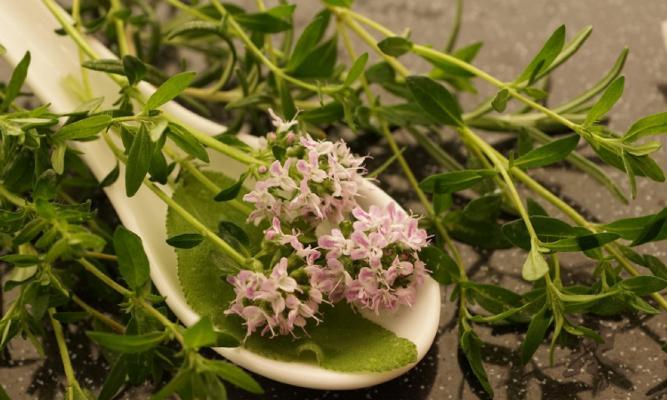Using a thyme mouthwash for periodontal treatment may improve gingivitis and reduce bad breath better than other mouthwashes, according to a new study.

The authors write that unlike other mouthwashes containing chemicals that can cause side effects, thyme rinse did not adversely affect the teeth, oral mucosa and tongue. This is believed to be the first report to discuss the use of thyme mouthwash as a treatment for halitosis.
“The use of thyme for gingivitis has been found to be effective for both gingivitis and halitosis,” write the authors, led by Dr. Metin Çalısir from the Department of Periodontology, Adiyaman University in Turkey.
Often associated with dental and gum disease, overeating, and keratoconjunctivitis sicca, halitosis can cause psychological consequences that lead to social, occupational, and emotional difficulties. Based on the results of previous studies, it is known that non-surgical periodontal treatment is effective not only for the overall improvement of the clinical condition of the periodontium, but also as a treatment for halitosis.
In addition to periodontal treatment, clinicians sometimes recommend or prescribe mouthwashes, but how well they work is debatable due to their potential side effects. For example, long-term use of chlorhexidine can cause distorted taste sensations and discolouration of tooth surfaces and mucous membranes.
To evaluate the effectiveness of thyme mouthwash, the authors conducted a retrospective study of 60 patients with gingivitis. 30 women and 30 men received initial periodontal treatment followed by oral hygiene instructions.
The patients were then divided into four groups of 15 people each. Of the groups, one group received oral hygiene instructions only, the second group was given chlorhexidine rinse, the third group was given zinc acetate and chlorhexidine diacetate mouthwash, and the fourth group was instructed to use thyme mouthwash.
According to the results of the study, at the beginning and one week after treatment, the gingival index, plaque index and volatile sulfur compounds (VSC) were recorded in patients. In the post-treatment groups, there was no significant difference between the values of the plaque index, and the values of the gingival index and VSC differed significantly between the post-treatment groups (p = 0.001).
In terms of VSC values, a significant difference was found between the thyme mouthwash and control groups, and between the thyme and zinc acetate mouthwash groups (p = 0.001). The differences indicate that mouthwash containing thyme may be just as effective as those containing chemicals, the study authors write.
In the control group, the gingival index values were the highest, while they were the lowest in the chlorhexidine group. However, thyme mouthwash has been found to be more effective in reducing gingival index scores than zinc acetate. This finding suggests that thyme mouthwash could be a successful treatment for inflammation in patients with gingivitis, the authors write.
The study had several limitations, including a short follow-up period. Because of this shortcoming, the long-term results of the mouthwash could not be assessed. While thyme mouthwash may improve gingivitis and halitosis, more clinical research is needed.
“Thyme mouthwash, which is a cost-effective natural remedy, has been found to be as effective as chemical antiseptics, suggesting it can be used in the treatment of periodontal disease and halitosis,” – wrote Chalyshir and his colleagues.
